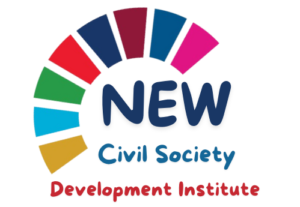Sustainability in Development Projects: An Urgent Necessity
By: Mustafa Bosh
Development projects are continuously implemented by governmental and non-governmental organizations. If these projects are designed and executed correctly, they can help eradicate poverty and hunger, provide clean water, improve the quality of health and educational services, and bring about real change in the lives of the community. Unfortunately, hundreds of millions of dollars are spent on projects whose impact disappears as soon as the project ends or shortly thereafter, as if they never existed. There is a famous saying, “Good intentions are not enough.” You may have the purest heart, but without the necessary knowledge and expertise to manage projects properly, you will waste community resources and deprive many people of their basic rights.
Sustainability of projects is an important topic often neglected by organizations. It simply refers to what will remain of the project after it ends or closes. For example, if an organization implements a project to drill a groundwater well in a village, who will be the main person responsible for managing this well after the drilling is complete? Specific individuals? The local administration? Or a certain government agency? Does the person responsible for managing the well have the necessary experience and skills, or do they need further training? Are there certain materials or equipment required to keep the well operational?
Another example is an organization building a charitable school. After constructing the school, who will be responsible for managing it? Where will the school’s teachers come from? Do they have sufficient experience? Do they need training?
Thinking about sustainability-related questions should begin at the project’s design phase to ensure the presence or availability of qualified individuals and materials that contribute to the project’s operations after it ends. Ultimately, what is the benefit of drilling a well if it is not regularly operated and maintained? What is the benefit of building a school without qualified teachers to educate the students?
Sustainability has become a topic of interest to donors, many of whom now require the inclusion of a sustainability plan as an essential part of the project proposal to ensure the project’s impact remains after it ends. Neglecting this aspect can significantly harm the organization’s reputation.
Conclusion
Non-governmental organizations must prioritize proper planning for project sustainability to ensure the project’s impact endures after it ends. This involves handing over the project to a capable local partner and providing the necessary training and equipment to support its ongoing management.
By: Mustafa Bosh – PMP & PMD Pro Certified Project Manager


